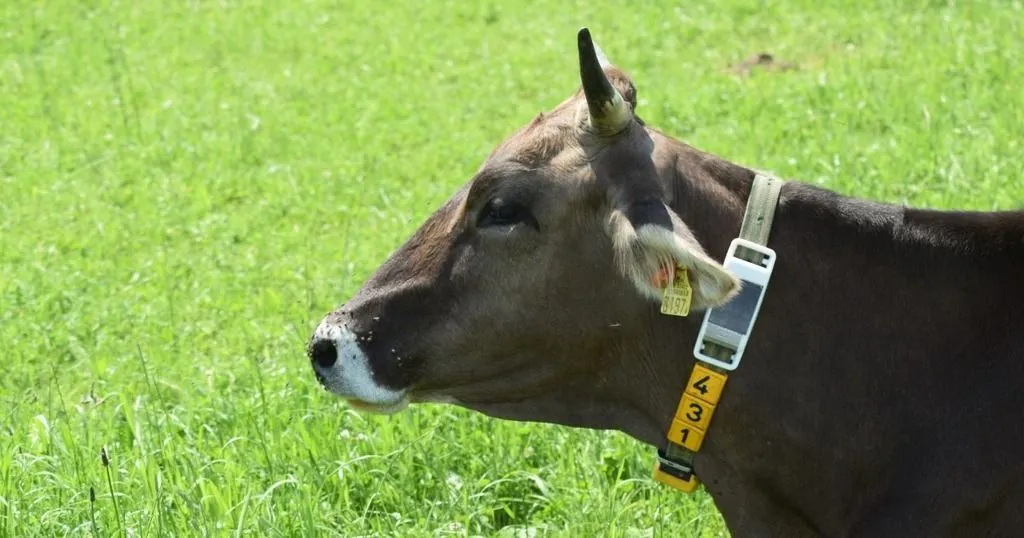Prof. Berry Spruijt says goodbye (but not really)
Prof. Dr. Berry M. Spruijt recently retired from his position at Utrecht University. I had the honor of attending the symposium that was organized to reflect on and celebrate his career.
Posted by
Published on
Tue 21 Apr. 2015
Topics
| Welfare | Behavioral Research |
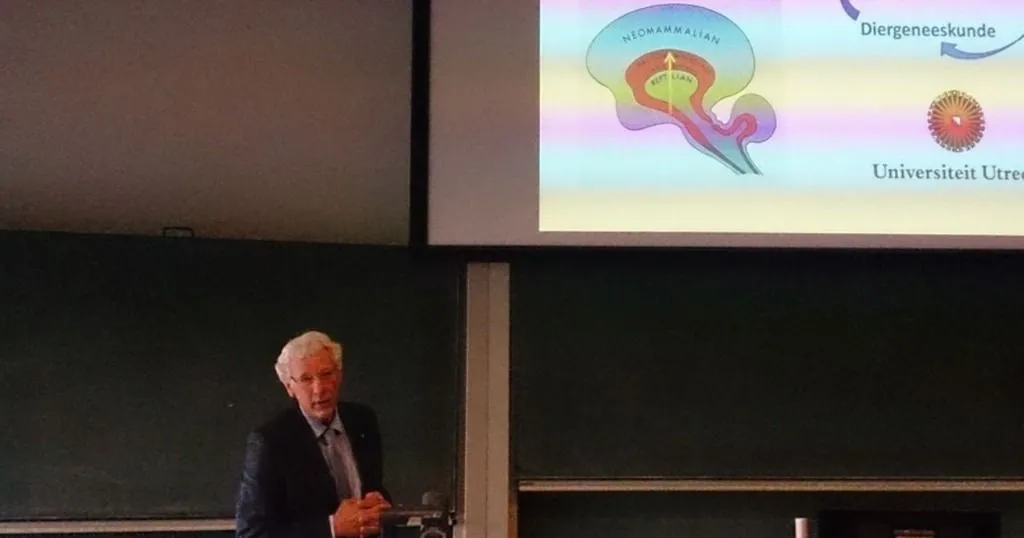
Did you discover something new today? This was the question Prof. Berry Spruijt used to get from his kids on a daily basis. As little ones, they might have expected their father to come home with the Nobel Prize every day.
While we normally focus on a specific study or type of research or research tools, today’s post is a little different. Prof. Dr. Berry M. Spruijt recently retired from his position at Utrecht University. I had the honor of attending the symposium that was organized to reflect on and celebrate his career.
On Friday the 10th of April, Berry Spruijt and his family and friends looked back on his career at a symposium organized in his honor. Although he will now retire from his work at Utrecht University, Spruijt made it clear that he is not ready to say goodbye. It is a merely another point in his career, and this symposium was a great opportunity to reunite with former colleagues and old friends.
Magic black box
Several speakers were there to educate us, not only on the subjects that are all too familiar for those that have worked with Spruijt in the past, but also on the path that was Spruijt’s career. Looking through old college photos to recent publications, it became clear that Spruijt has always been fascinated with the magic black box we call the brain. Over the years he unraveled part of its mysteries, and in doing so, gained important knowledge on emotion, cognition, anticipation, welfare, and well-being in animals.
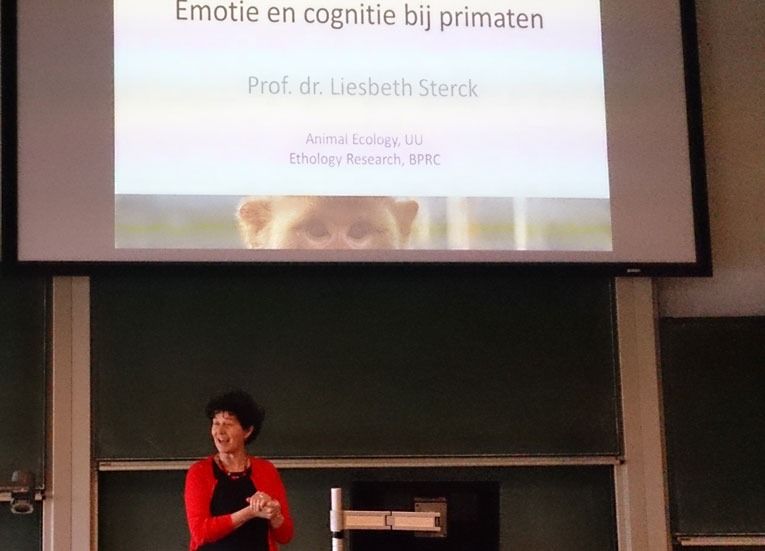
Grooming rats
For Spruijt, it all started with one hormone and one behavior as he published his first work on ACTH and grooming in rats. Soon he would integrate automation of behavioral observations into his regular research, as his 1983 publication titled “Prolonged animal observation by use of digitized video displays” reads. Later his interests navigated him towards social behavior and welfare, while his determination to use computer technology to improve animal research grew ever stronger.
Monkey friendship
Spruijt’s research was not limited to rats and mice – it did not take long for him to take on some monkey business. Liesbeth Sterck told us how they used computer models to compare different theories with their behavioral observations. What they found was revolutionary: they discovered that monkeys, like humans, cultivate friendships. In addition to rats, mice, and monkeys, Spruijt has worked with several other species over the years, including apes, horses, and chickens.
International ties
The second speaker, Gernot Riedel, came all the way from Aberdeen to tell us about approaches in behavioral neuroscience, but instead of the usual suspects (rats and mice) he took Berry Spruijt himself as a study subject. He tried to explain the logic behind Spruijt’s mind-boggling publication count - 179 in 32 years! Comparing day-night rhythms and cross-referencing the data with trips Spruijt took, he came to the term play-night rhythm. All in good fun, of course.
Pleasure is the money of the brain
Ruud van den Bos and Johanneke van der Harst described their work on well-being, brains, and animals – a subject that was bestowed upon them by SPRUIJT BV, as Van den Bos jokingly put it. “Pleasure is the money of the brain,” Spruijt had often said, and Van der Harst explained their methods in measuring this pleasure. Wanting, liking, and anticipating seem to be important factors in what they liked to call the S-rate (or S-factor, or schaal van S in Dutch, in which the S stands for Spruijt, of course!).
Automation of behavioral observation
Then Lucas Noldus talked about valorization, which is an important process within every company. Spruijt has been a scientific partner in many projects and a good friend of Noldus for about as long as the company Noldus IT has existed. He might be called the “godfather of EthoVision” as his group wrote the first software program and he was a driving force behind the further development of this video tracking technology. Later he also became the mastermind behind PhenoTyper and Ultravox, as Spruijt knows –better than anyone – how important a home cage environment is for both animal welfare and scientific validity.
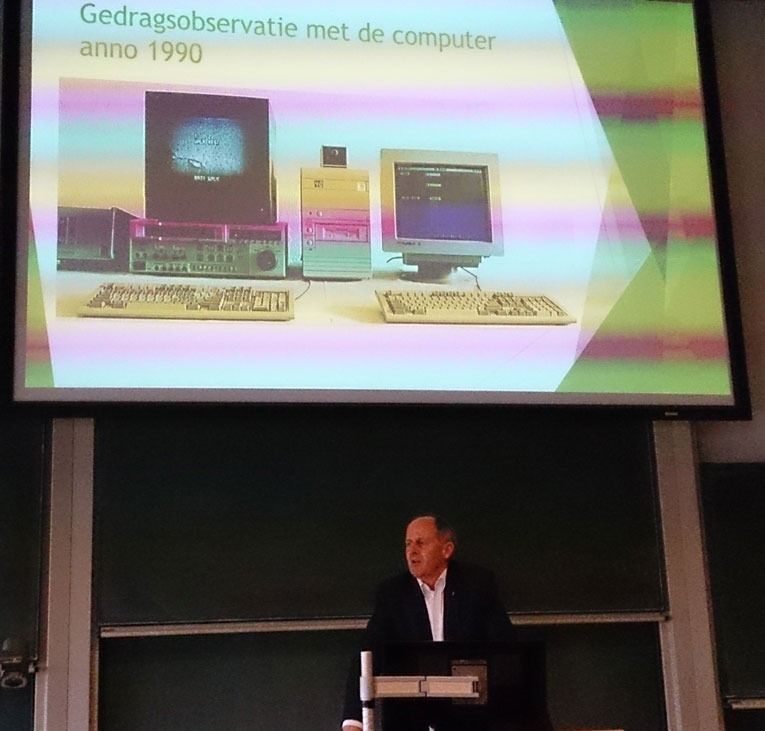
Discover something every day
After a lecture on science and journalism by Jan Staman and some more personal reflections, Berry Spruijt closed the symposium by telling us all about his journey through the brain. While it is time to retire from his work in Utrecht, Spruijt is far from done. Animal welfare, legislation, and goodwill causes will stay part of his daily agenda, as will the mysteries of the brain in general…because you can take the professor out of the scientific department, but you can never take the science out of the professor. All grown up, his children will still have reason enough to ask their father – did you discover something new today?
Related Posts
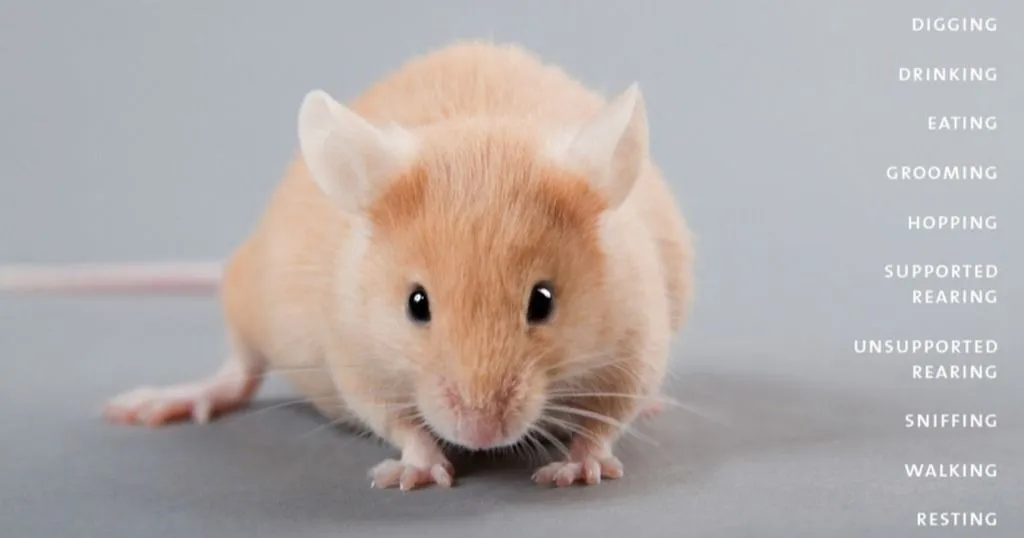
5 EthoVision XT webinars for you to watch
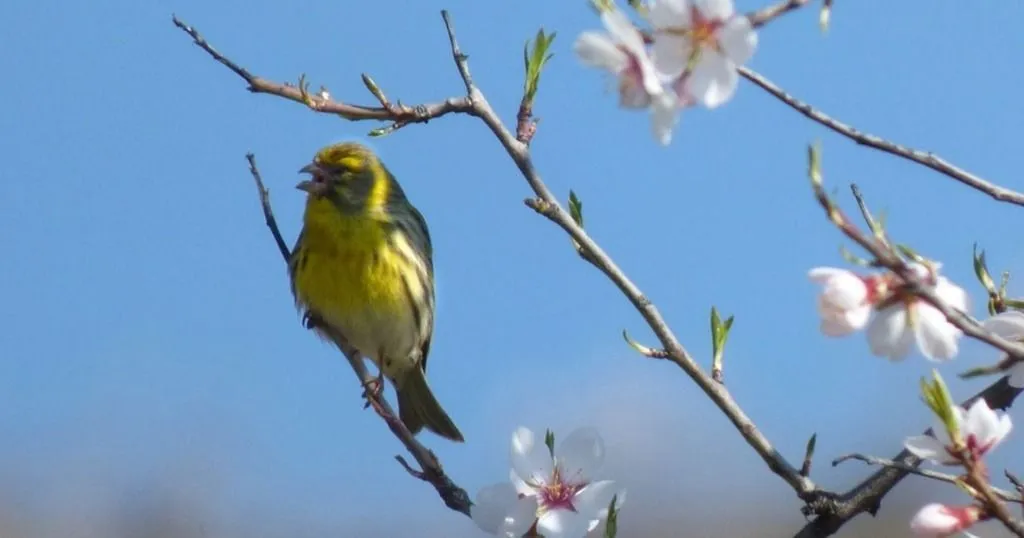
Beautiful birds and UV – What we cannot see
